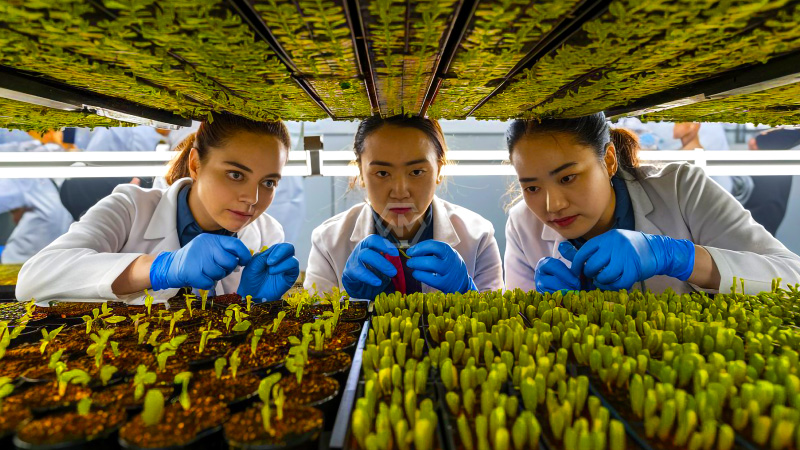- China has extended its zero-tariff policy to all Least Developed Countries (LDCs) with diplomatic relations, boosting trade and infrastructure growth.
- China’s imports of agricultural products from LDCs, especially African nations, have grown significantly, with processed food imports increasing by over 40%.
- Strategic investments in critical minerals like cobalt and lithium in Africa align with China’s broader goals of securing supply chains for global economic dominance.
China’s zero-tariff policy for LDCs aims to promote economic growth by enhancing trade relationships, particularly with African nations.
Simultaneously, China’s investments in critical minerals such as cobalt, lithium, and gold are pivotal in securing key resources for its industrial and energy transition needs.
China’s Strategic Zero-Tariff Policy: Securing Resources and Expanding Influence in LDCs
In December 2024, China made history by offering zero tariffs on 100% of products from Least Developed Countries (LDCs) with which it has diplomatic relations. This marks a significant expansion of China’s earlier zero-tariff policies initiated in 2010. With LDCs benefiting from these preferential tariffs, China is fostering stronger economic partnerships, particularly with African countries. This is part of a broader strategy aimed at securing both agricultural and industrial supply chains. Through the One Belt One Road (OBOR) and Forum on China-Africa Cooperation (FOCAC), China is laying the groundwork for long-term trade and infrastructure investments across these nations.
The growth of China’s agricultural imports from LDCs is a clear indication of the success of this strategy. For instance, China’s imports of processed food and agro-based products from countries like Mauritania and Myanmar have seen impressive increases over the last five years. With zero tariffs, these countries are more competitive in the Chinese market, and China benefits from a more diverse range of agricultural goods. The enhanced trade relations are a direct result of China’s comprehensive support for LDCs in areas such as infrastructure development, capacity building, and market access.
In addition to agriculture, China’s push to secure critical minerals is a major aspect of its policy towards LDCs. African countries like the Democratic Republic of Congo, home to a significant portion of the world’s cobalt reserves, are central to this strategy. Chinese investments in mining and rare earth extraction not only benefit these countries economically but also give China greater control over vital resources. The partnership is mutually beneficial, with China strengthening its supply chains and LDCs receiving crucial infrastructure and investment that boosts their economies.
China’s zero-tariff policy for LDCs stands in contrast to the US’s approach, which focuses more on tariffs and protectionism. This provides China with an opportunity to expand its influence in the global South, especially in Africa, where it is gaining significant ground in terms of trade and diplomatic relations. The growing presence of Chinese companies in the mining sector, coupled with investments in agriculture, is helping China secure its role as a global economic power while positioning itself as a leader of the developing world.
China’s zero-tariff policy for LDCs strengthens its trade relations, secures vital resources, and solidifies its position as a global leader in open trade.
“China’s strategic investments in LDCs are about securing long-term economic and resource advantages while fostering sustainable growth and development in these nations.”



